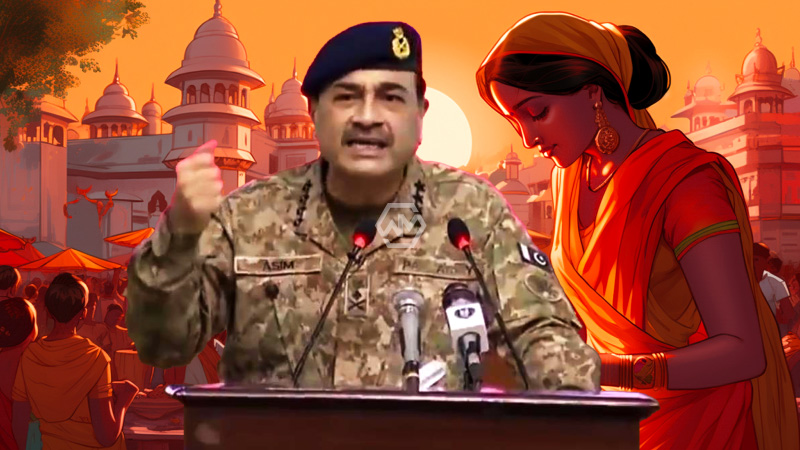- General Asim Munir asserts Hindus and Muslims differ in “every possible aspect of life.”
- Reiterates the Two-Nation Theory at an overseas Pakistani convention in Islamabad.
- Urges new generations to remember Pakistan’s religious foundations and sacrifices.
General Asim Munir’s recent speech reignited the ideological premise behind Pakistan’s creation—asserting that Hindus and Muslims were “two nations” from the start.
The general’s comments come amid ongoing regional tensions. This is particularly following India‘s firm rejection of Pakistan’s claims on Jammu and Kashmir at the United Nations.
Asim Munir’s Remarks Spark Debate on Partition Legacy and Pakistan’s Identity
Pakistan Army Chief General Asim Munir’s speech at the Overseas Pakistanis Convention revived the foundational ideology of the Two-Nation Theory. This concept is rooted in the belief that Hindus and Muslims are fundamentally distinct. He asserted that everything—from religion to customs to ambitions—separates the two communities. This reinforced the rationale for Pakistan’s creation in 1947.
His message, directed at overseas Pakistanis, was also a call to preserve and transmit this narrative to future generations. Munir emphasized that the sacrifices made by the country’s founders must never be forgotten. He also stated that the ideological roots of Pakistan should remain unshaken, even among the diaspora.
These remarks were made in the presence of Prime Minister Shehbaz Sharif, suggesting alignment between Pakistan’s military and civilian leadership on this ideological stance. It also indicates a push to consolidate national identity through a religious lens. This comes at a time of rising global scrutiny and domestic unrest.
While such speeches aim to foster unity, critics argue that reasserting the Two-Nation Theory risks perpetuating division and sectarianism. It may also hinder dialogue between India and Pakistan, especially as geopolitical tensions remain high over Kashmir and regional militancy.
General Munir’s speech, while invoking history, reflects present-day challenges in shaping national identity. It also addresses diplomacy in a region still grappling with the legacy of partition.
“We are two nations, we are not one nation.” – This quote encapsulates the essence of General Munir’s speech, reinforcing the core of the Two-Nation Theory and its continued relevance in Pakistan’s official narrative.



